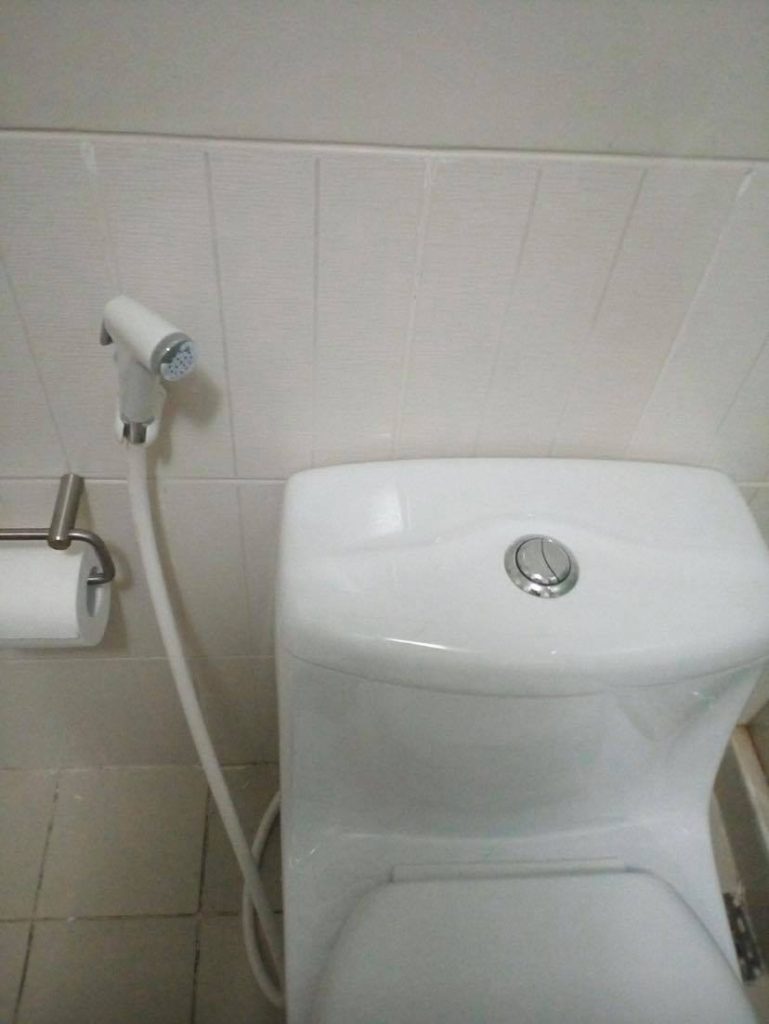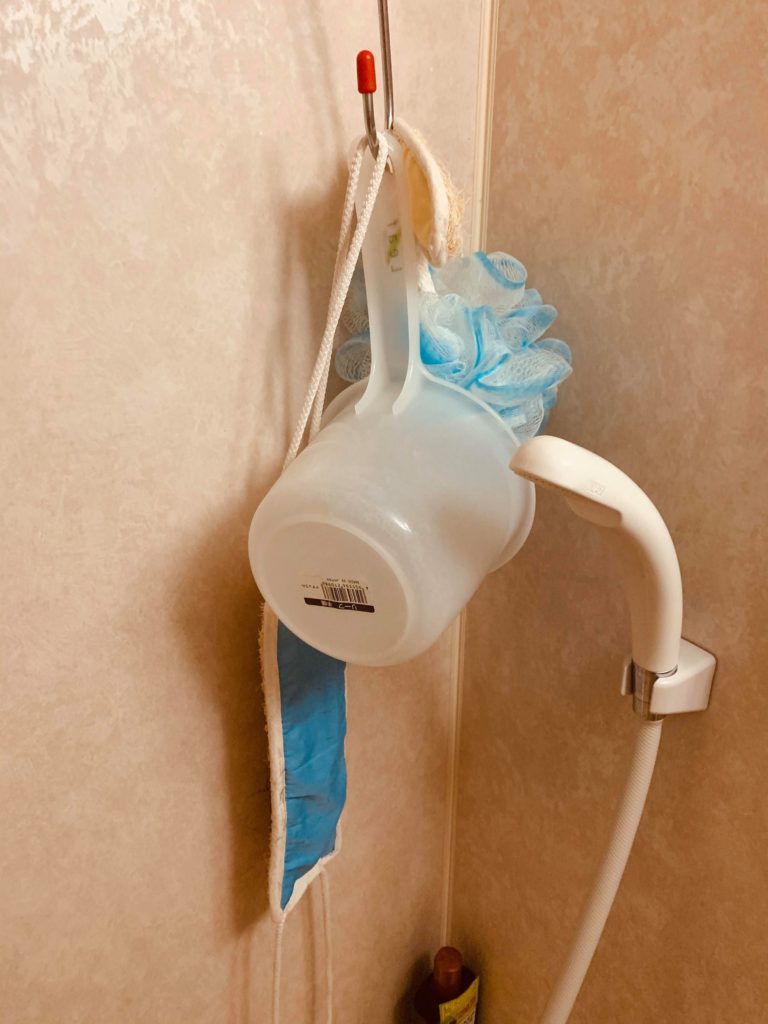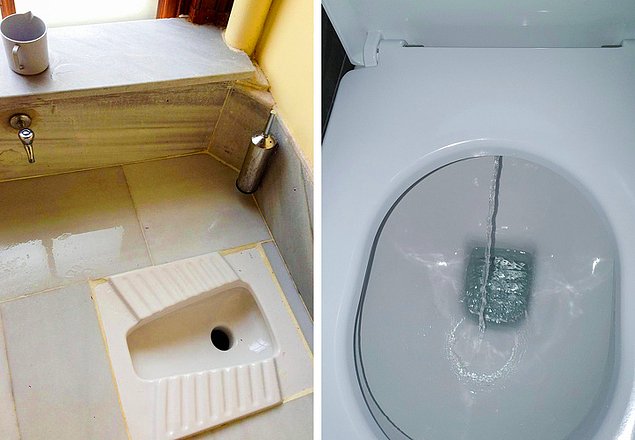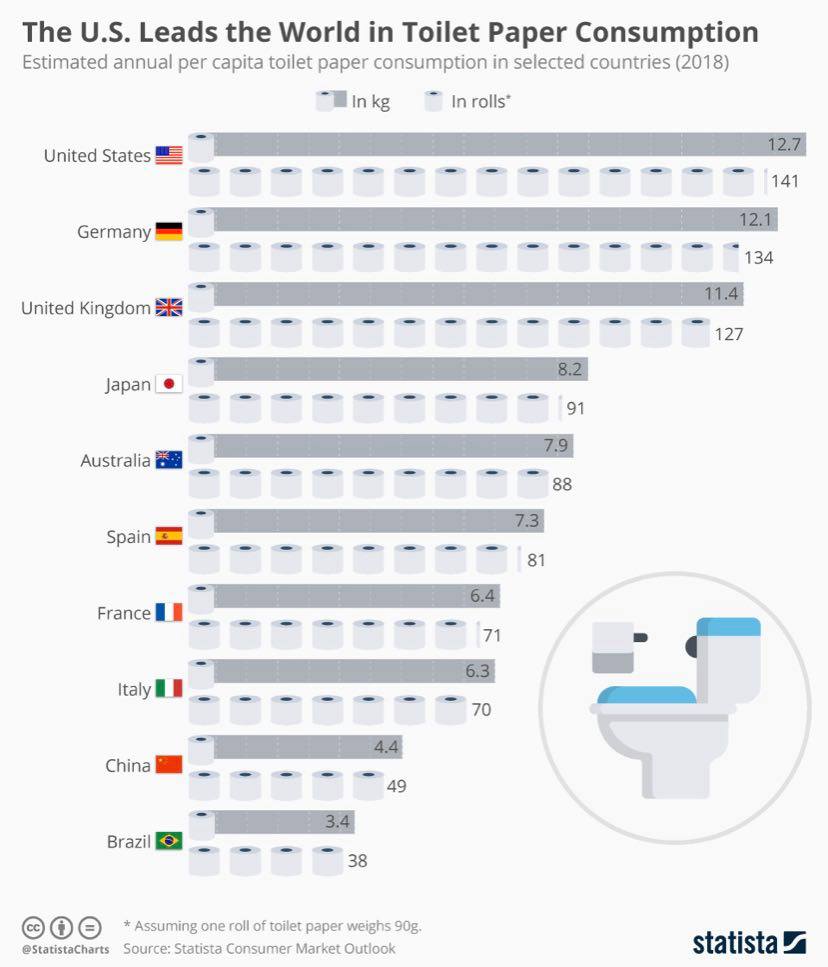People who use only small amounts of toilet paper seem to be less bothered by the ongoing shortage than those whose ‘toilet habits‘ depend on it.
Why? They have good hygiene habits.
In Asia, washing children’s bum with soap and water until about age 5 or 6 when he or she can do it by himself, is a normal hygiene routine. Growing up, my mom washed my bum with water and soap which she used to say, ‘takes the dirty poop, nasty smell and sickness-causing bacteria off my bum.’ As I grow older, I learned in Science education that she wasn’t lying. Viruses and germs do wreak havoc on someone’s health and toilet paper doesn’t help. So now that I have children, I too, tell them the same thing.
In almost every household in Southeast Asian countries I have been to such as – Thailand, Philippines, Vietnam, Malaysia, Indonesia, and etc., – it isn’t unusual to find one of two things: a hand-held bidet sprayer (health faucet) for the ‘haves’ or a dipper for the ‘have-nots’. But in Japan, even high end Japanese apartments sometimes don’t come with sophisticated bidets. Instead, people use a dipper to give their bums a good wash. This explains why toilet paper consumption in Asia is relatively lower than in other places. A majority of people in West India where income levels are high, believe toilet paper to be less hygienic and prefer water for cleansing. This is why families don’t see toilet paper as an absolute necessity.

In the Philippines, almost every household use a a hand-held bidet sprayer.

People in Japan use dippers in apartments not equipped with bidets.
It would be a mistake to say washing is an Asian cultural thing. It isn’t.
In Moroccan and Tunisian households, for example, French style bidets with a soap dish in the corner, are a standard fixture. Rural households in Turkey with no Western-style bidets, have squat toilets similar to Japan’s and people are used to washing themselves using a dipper. What’s interesting to note though is that in Ankara, nearly every toilet has a soap but it isn’t unusual to find urinals without a toilet paper. The reason behind this is that Turkey’s religious authority prohibited people from using toilet paper. It was only in 2015 that the use of toilet paper was approved for use in places where water is not immediately available.
Washing with soap and water isn’t even supposed to be a cultural or religious thing. Science tells us why. Soap contains
fat-like elements called amphiphiles that loosen, dissolve and kill virus membranes as you lather even before it has the chance to multiply. It sticks to the skin like glue which water or toilet paper alone, can not kill.

Squat-style toilets in Turkey (Left) always have a dipper and soap for washing. (Right) Regular bidets at some households.
So why is it then that the Western world that’s so advanced in hygiene and sanitation rely heavily on the use of toilet paper instead of water and soap to clean their bums? I couldn’t have said it better than Dr. Zisis Kontogounis, a Macedonian doctor: “The main reason is product promotion combined with ill information due to private interests.” He raised an important question to America’s CDC, whether there were ways to reduce the number of hospital-acquired infection and urinary tract infection. CDC came back with an answer saying, ‘there are no research studies about it.’ Dr. Kontogounis says that that admission alone sums up the Health authorities’ approach or the lack of it, in preventing infections which is why efforts had partially failed.
“It is known that direct contact of a patient or nurse in a hospital with fecal matter could transfer microbes. But it seems there is a second, maybe more insidious and dangerous route of contamination in hospitals, all over the world, that is systematically neglected. After the visit to the toilet and the wiping, there is a poop residue on patient’s posterior, that later dries up and becomes dust full of pathogenic microbes exposed to other patients, flying in the air, all over the ward. I must note that hospital patients being usually debilitated, with mobility restrictions etc, are unable to wipe themselves sufficiently, particularly if there are piles of hair in the anal area.”
Toilet paper is abrasive on our derrieres. If anything, its use should be limited to pat drying the skin after every wash. No toilet paper wiping can effectively remove a poopy smell and bacteria than washing.
A pattern of excessive toilet paper buying is giving away people’s secret toilet habits at this time of the coronavirus scare. What people do with them is no longer just their business. It is everyone’s business to act responsibly so they do not infect others with poor hygiene habits. So the best defense against harmful viruses is by washing and soaping as you would your face and hands.

Coronavirus can spread through poops, suggests study.














